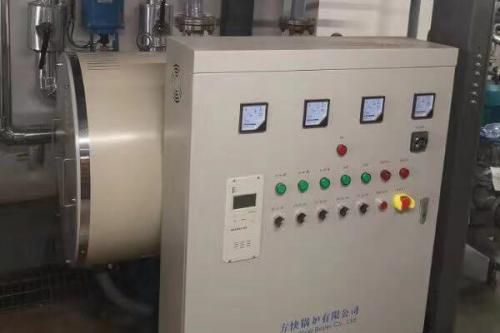Improving the Efficiency of Biomass Boilers for Industrial Heat Conversion
Biomass energy, a renewable source with zero carbon dioxide emissions, is increasingly recognized as crucial for sustainable energy transformation. In this context, boilers, essential for thermal energy conversion in industrial processes, are gaining prominence. Biomass-fueled boilers, in particular, have significant market potential, especially in environments where coal combustion is restricted. However, many biomass boilers suffer from low thermal efficiency. This article analyzes the reasons for this inefficiency and offers practical suggestions for improvement.
Causes of Low Thermal Efficiency
1. Unreasonable Boiler Structure
The design of some biomass boilers includes poor air chamber sealing, leading to air cross-flow and leakage, which increases heat loss and reduces thermal efficiency. Traditional "eight"-shaped furnace structures are often inadequate for the segmented combustion required by biomass boilers, resulting in inefficient fuel combustion.
2. Long-term Low-load Operation
Operating boilers at low loads for extended periods increases heat loss and reduces efficiency. This often occurs when boilers with excessive capacity are purchased or when operators fail to monitor and adjust the boiler’s operating conditions, keeping the load outside the economic range.
3. High Exhaust Smoke Heat Loss
Heat loss through exhaust smoke is a significant factor, influenced by exhaust temperature and excess air coefficient. High values in these parameters lead to reduced thermal efficiency, often due to improper air distribution, system leaks, and outdated air adjustment methods.
4. Unqualified Boiler Water Quality
Poor boiler water quality leads to scale formation, increasing heat transfer resistance and reducing efficiency. This issue stems from inadequate water quality management, mismatched water treatment equipment, and insufficiently trained personnel.
Suggestions for Improving Boiler Thermal Efficiency
1. Enhance Boiler Design and Manufacturing
Optimizing the boiler structure to effectively utilize flue gas waste heat and increasing the heating surface or using multiple heat exchange methods can reduce exhaust gas temperature. Improving the thermal insulation and ensuring good sealing and insulation of all boiler components can significantly reduce heat loss.
2. Implement Energy-saving Management Systems
Energy conservation and environmental protection managers should have clear responsibilities. Boiler operating parameters should be included in daily inspections, and abnormal conditions should be promptly addressed. Establishing a fuel inspection system to ensure the biomass pellets match the boiler design is also crucial.
3. Improve Technical Skills of Boiler Operators
Providing energy-saving training and conducting regular combustion and adjustment tests for operators can enhance their ability to monitor and adjust boiler conditions. Adopting a thin biomass fuel layer, low-wind operation mode, and adjusting grate speed based on load changes can optimize operating conditions.
Conclusion
Industrial boilers are vital in the national economy, especially biomass boilers, which present unique challenges in achieving high thermal efficiency. By addressing the causes of low efficiency and implementing the suggested improvements, the overall efficiency of biomass boiler s can be significantly enhanced. This not only promotes the efficient use of energy but also supports sustainable development. These improvements will help expand the application of biomass energy in industrial settings, contributing to a successful energy transition.






Comments